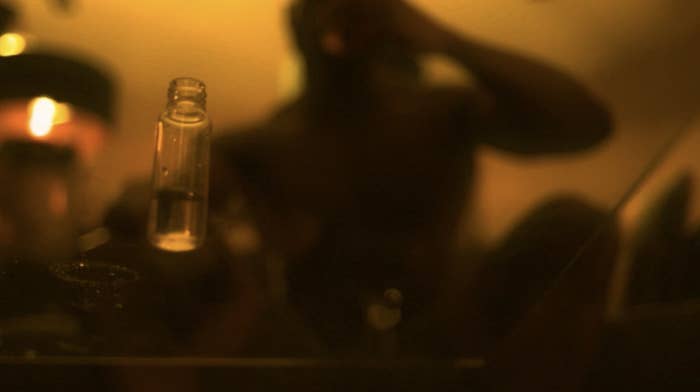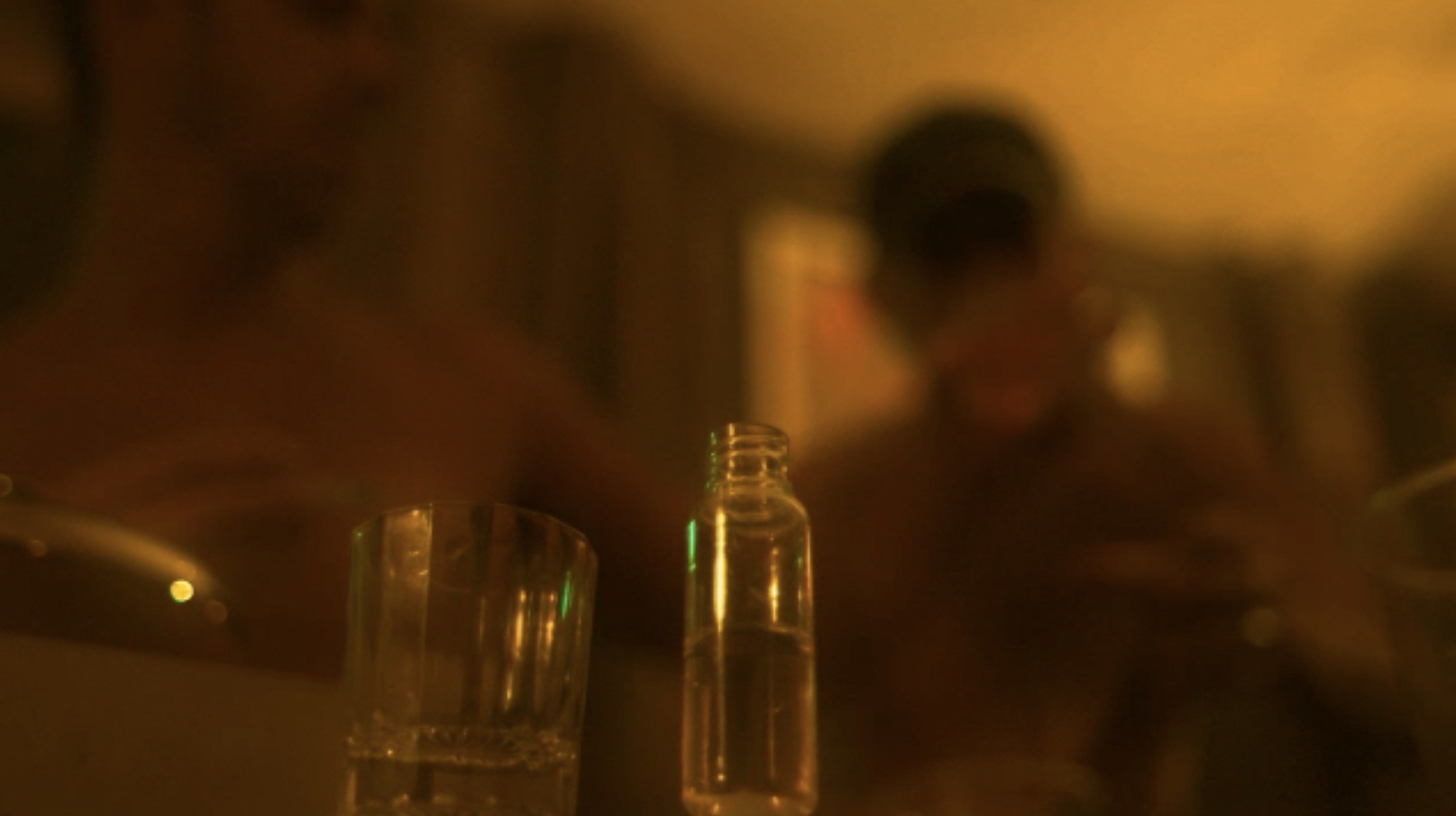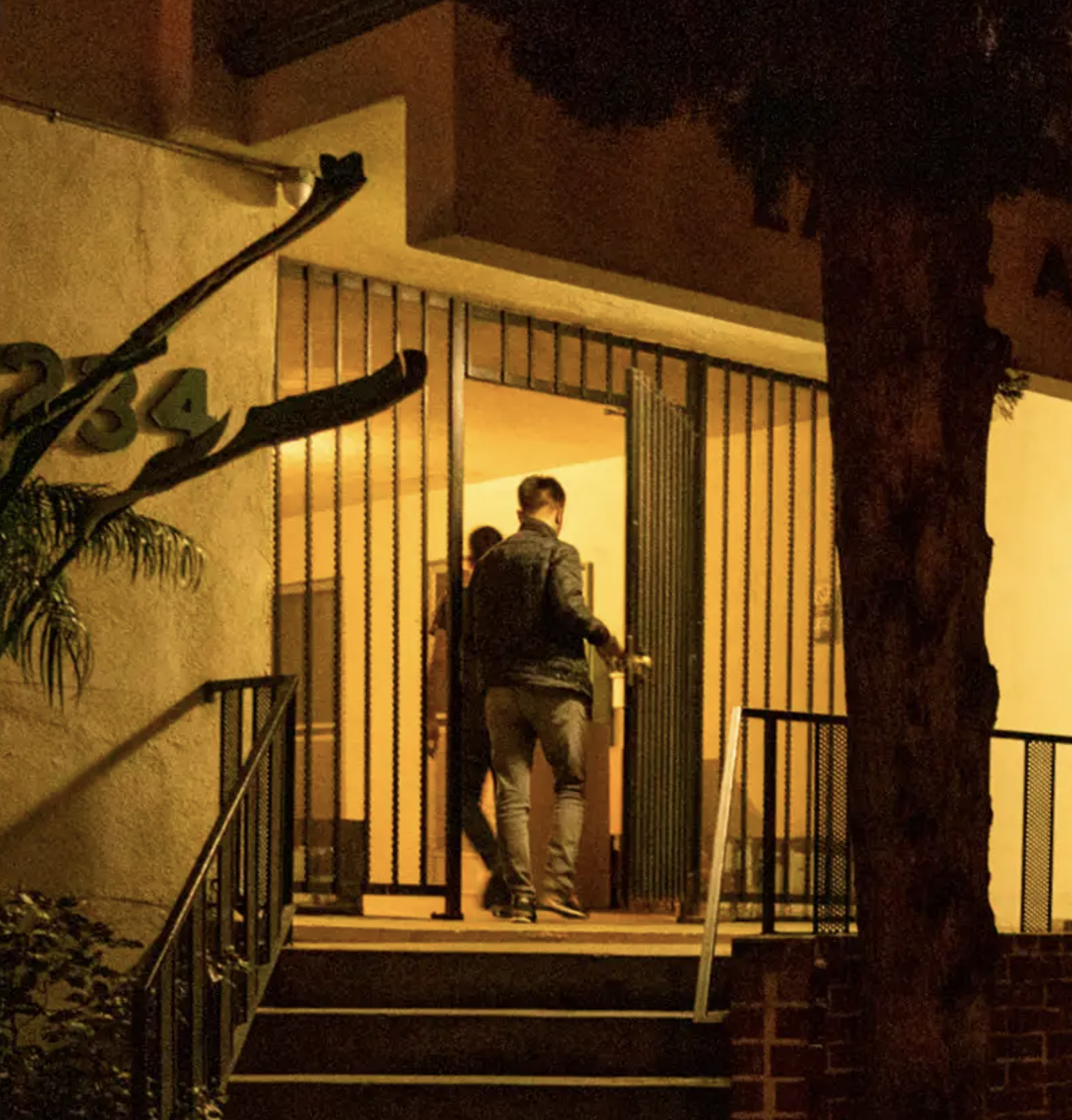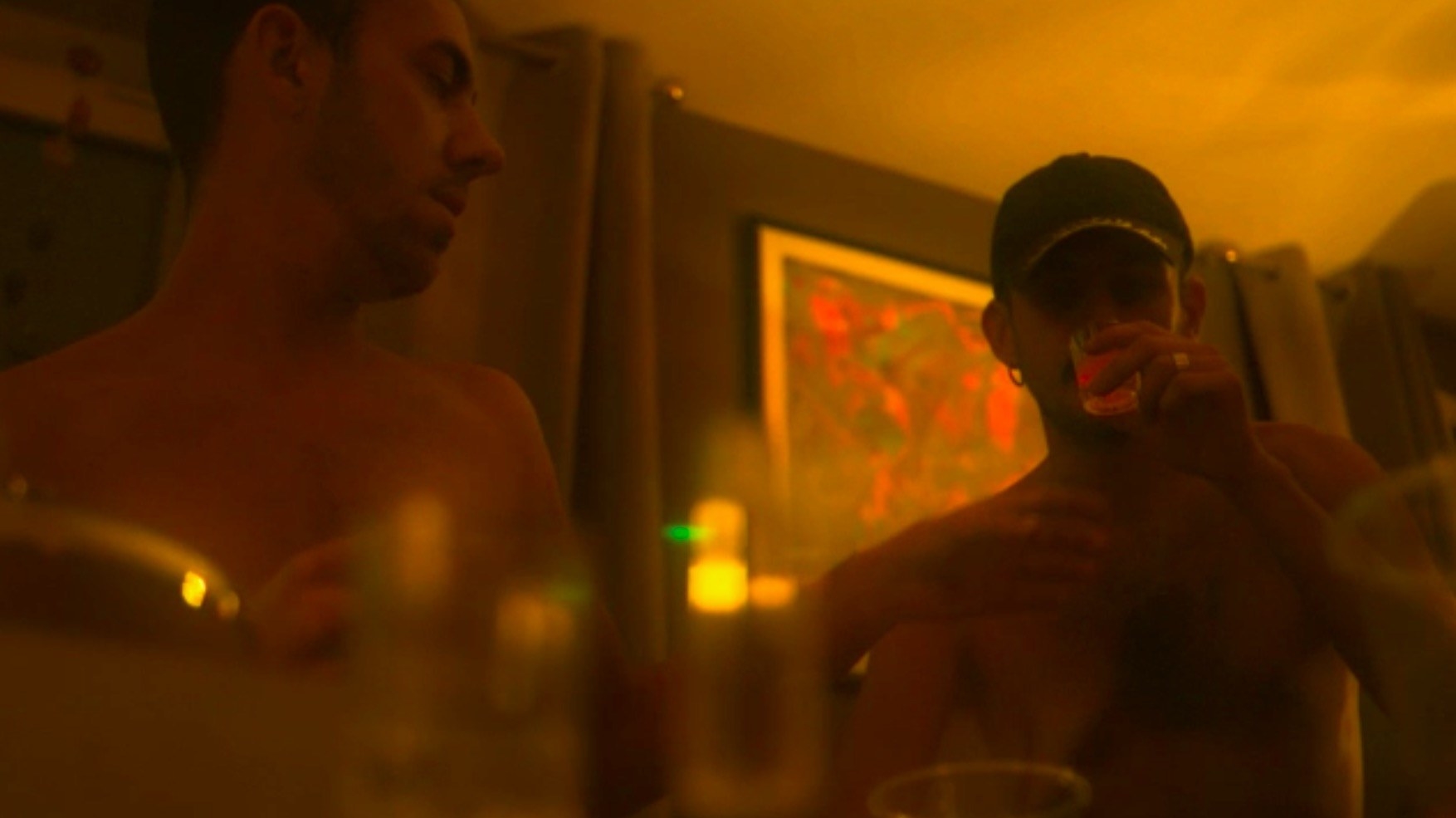
BuzzFeed News has reporters across five continents bringing you trustworthy stories about the impact of the coronavirus. To help keep this news free, become a member and sign up for our newsletter, Outbreak Today.
People are still being arrested for chemsex-related offences during the coronavirus lockdown, even though the risks during this period are greater than ever, police officers and a senior probation official told BuzzFeed News.
With “hookups still happening”, apps “still busy”, and drugs still being dealt, one of the key differences is that the dangers are now more hidden, they said, heightening the impact on health and the chances of becoming a victim of crime. “The risk changes,” one warned.
In an interview with BuzzFeed News, two key members of the Metropolitan police team tackling chemsex-related crimes — Inspector Allen Davis and PC Richard Unwin — and Stephen Morris, the chemsex lead for the prison and probation service, set out a disturbing picture of offending amid the lockdown.
They described drug supplies being tampered with, an increase in grooming and online offences, sex workers being forced into using chemsex, and victims of sexual violence less likely to come forward. And with empty streets and clubs shut, chemsex is going further underground, reducing the possibility of someone helping if something goes wrong.
The unusual decision by Davis, Unwin, and Morris to detail what is now happening is two-fold, they said. The first is to alert those involved to the distinct, often invisible vulnerabilities they may now face — while encouraging people to seek help from police or other services if needed.
The second point is to make clear to perpetrators that the policing surrounding this is not stopping: rapists, dealers, importers, those who deliberately overdose others, or men who beat their partners under the influence, will be pursued and investigated, they said.
Late last month, a 45-year-old man was found guilty at Isleworth Crown Court of sexual assault, administering a substance in order to sexually assault, theft, and the possession of a class C drug — and jailed for eight years and five months. Carol Simon had approached a man coming out of the City of Quebec pub in central London, asked to share a cab home, followed him into his house, drugged and assaulted him, before stealing his phone. DNA matching was used to find him.

While those offences took place before the lockdown, trials are also being “lined up” for chemsex-related cases that occurred since then, according to Morris. “Some cases have been referred to court over the last three weeks,” he said.
Chemsex usually refers to gay/bi men who have sex under the influence of key drugs such as crystal meth, mephedrone, and GHB or GBL, but can include other drugs and people from different genders and sexual orientations.
While most involved do not commit offences other than possession of proscribed substances, a minority have been associated with a wide range of crimes from rape, murder, assault, and drugging to theft, dealing and organised crime.
Davis and Unwin, from the Rape and Harmful Practices Partnership Team, are now working alongside a range of criminal justice, health, victims services, and LGBT organisations under the banner of Project Sagamore — a new operation, reported by BuzzFeed News earlier this year, to manage harm caused by chemsex. They said they want to initiate a “sensible conversation” about risk reduction because since lockdown, the landscape has changed.
The driving forces behind it have, too. According to Morris, who established the prison and probation service’s guidelines for working with chemsex offenders, “the motivating factors for people to get involved in chemsex — things like loneliness, isolation, boredom, sexual needs, risk-taking — all those things in the current context are really heightened”.
As a result, the probation officers who work with existing offenders of chemsex-related crimes were immediately on alert. “Almost overnight we were very aware that the men we work with — either who had done really well or who were ongoing cause for concern — were vulnerable to reoffending; that the risk was heightened very quickly.”
Even in normal times, he said, some people have an urge to take risks. “For many people crime is a need for excitement, people will get off on the risk-taking involved; and in relation to chemsex the use of extremes, which can be sexualised and can be made more powerful as a form of escapism — that all comes together.”
Add lockdown to that, where no one is supposed to leave their house, and “that’s a very potent mix. If there's a need for risk-taking and extreme behaviours, what that can lead to is offending”.

For the most extreme offenders, there is now an increased chance of online crimes, even without breaking the lockdown, he said: the sharing and making of child sexual abuse images, the live streaming of abuse, networking with other abusers.
“There is a real dark side in terms of perpetrators,” said Davis. “And we need to think about how perpetrators and those exploiting are changing their behaviour to take advantage of the current situation.”
Overall, he said, there was “significant risk of exploitation both online and offline”. This can include grooming, sexual exploitation, overdosing, and among many other crimes.
Young people are especially vulnerable to this during lockdown, said Morris, as they can be “incredibly naive and trusting, especially if their mental health is not functioning well at a time of collective vulnerability”.
“We know that they will be looking for connection and for people to make them feel better about themselves, and they won’t necessarily be aware that people will be interested in them for many other reasons than what is being said,” he said.
Some perpetrators have already been arrested, charged and bailed, awaiting trial for when the courts resume normal service, said Morris. So far, these alleged offences do not appear to be of the most extreme kind because those awaiting trial have not been remanded in custody — and courts are only hearing cases for which the defendant has been remanded. But he added that he only covered cases in the London area.
For Davis and Unwin, the threats to personal safety for those involved in chemsex during lockdown is high for several reasons.
“There’s going to be a disruption in the usual supply of drugs because the country they come from has been in lockdown so that initial source material isn’t coming through,” said Unwin.

What that means is that for suppliers to keep making money, they will need to “change the substances before they sell them because they don’t have the usual materials to create them”. The risk, therefore, is, “if you’re buying something, then how do you know what you’re actually buying?”.
He said people may also find themselves buying drugs from someone other than their trusted regular dealer. “If your traditional supply is interrupted then maybe you’re having to approach someone else you don’t know.”
The chances of this are particularly high when people are addicted, reducing the element of choice, he said. “They still need to keep those substances coming and if they can’t get them from their traditional method of supply it’s riskier for them approaching somebody.”
If you overdose and have to go to hospital there are two potential problems during lockdown, Davis suggested: an overstretched A&E and a risk of contracting the coronavirus.
Male sex workers are now at a particular risk, he said. During regular calls with partner organisations within Project Sagamore, a new phenomenon has been reported: “Increasing chemsex by sex workers who wouldn’t have been involved before,” he said, explaining that with demand for their services radically reducing, as clients stay home, many sex workers trying to survive can no longer say no.
“We’ve seen more risk-taking behavbiour with male sex workers. There’s a pressure from clients for them to be involved in chemsex,” he said. Anyone inexperienced in taking meth or GBL, who doesn’t know how to dose carefully, or where to source them from, is therefore especially vulnerable to harm.
The lockdown has meant bars, clubs and saunas closing, some of which are known as “public sex venues”, where a proportion of chemsex activities normally take place. Now, however, it’s all been pushed away from any public spaces into private, domestic ones.
“Where you have public venues you’ll have someone who will be first-aid trained,” said Unwin. Often there is a level of professional responsibility, he said, having himself worked with police in clubs giving advice about GHB/GBL to prevent overdosing. And when someone is sexually assaulted in a bar they at least have members of staff they can turn to. “In a private home it’s a very different environment for that to happen,” he said. “That support element isn’t there.”

“What happens if you go under in an environment where you’re not only using drugs, breaching social isolation and you’re in a stranger’s home?” asked Davis. “Does that mean they’re not going to call an ambulance for you?”
BuzzFeed News has previously reported accounts of people in chemsex parties witnessing an overdose but attendees either delaying phoning 999 through fear of the police coming, or not phoning at all. Such delays can be fatal.
The lockdown means something else too: emptier streets. Many have previously spoken about the casualties of chemsex spilling onto streets, with people collapsing from an overdose after leaving a party, or being dumped on the road after going under, others having meth-induced psychotic episodes running down streets in a fit of paranoia. Police reports have involved picking up naked or semi-naked people after being sexually assaulted and drugged.
Often in these situations, members of the public have intervened, offering help or phoning the emergency services. But lockdown is different.
“It means that if you’re a victim on the street there is no one to find you,” said Morris.
But the police are still patrolling, said Davis. The perception that the police’s backs are now turned; focusing on members of the public sunbathing in parks rather than more serious crime, is “categorically wrong”. Offences committed in chemsex settings are “not a hidden crime that we don’t know about; it’s not a hidden world we don’t understand”, he said.
“We are still there to help and support,” said Davis. “We haven’t stopped investigating sexual violence or dealing with organised crime or drugs and all of these overlap into this area. But our priority has to be around safety and the safeguarding of vulnerable people.”
Encouraging victims of sexual violence to come forward remains crucial, but the lockdown poses problems.
“People are still reporting [offences],” said Unwin — and rape and sexaul assault services, such as The Havens in London, are still operating under lockdown. But some may not be offering the same level of services, sexual health clinics are also running reduced operations, and the fear of reporting sexual violence following a chemsex hookup may have increased as a new layer of judgement arises.
“It means we have an additional barrier,” said Unwin, “that people might feel they are breaching that social isolation boundary by having sex with someone not from their own household. People very often self-judge when they become the victim of any type of offence and the message we’re trying to get across is: you don’t have to judge yourself, talk to a support service. If it’s not the police, talk to someone who can support you.”
Davis echoed this, urging people to come forward and report offences. “We’ll support victims of these very serious crimes regardless of the circumstances of the incident,” he said.

